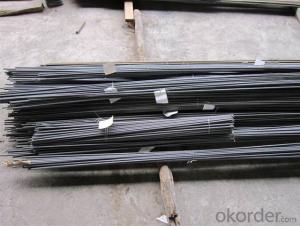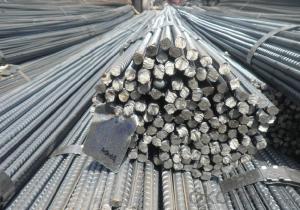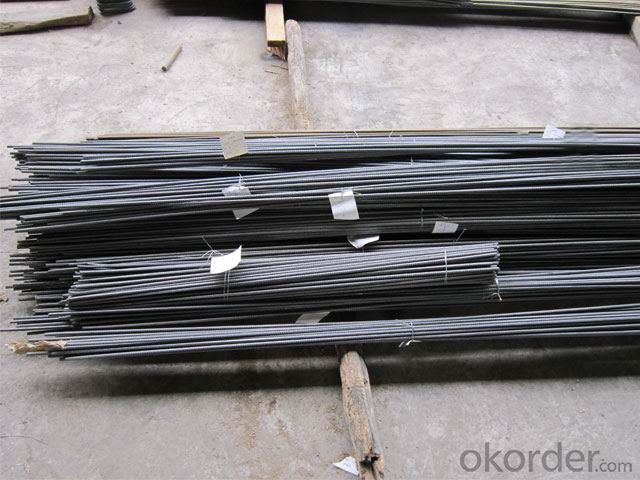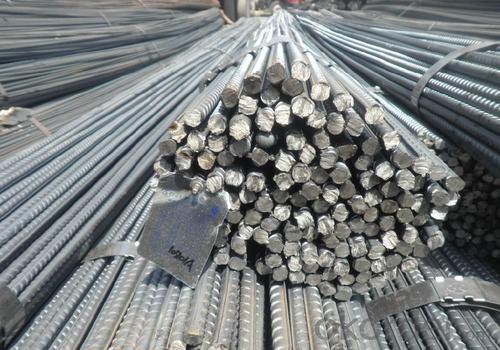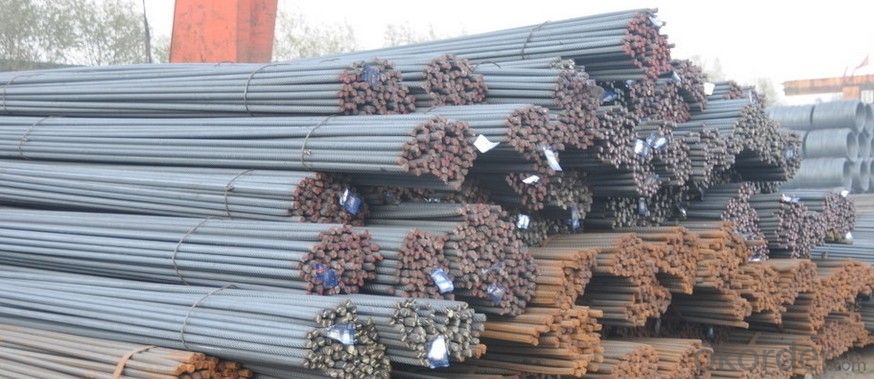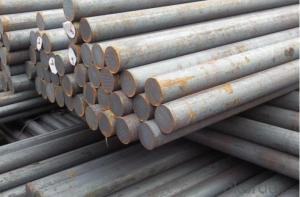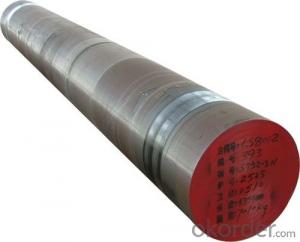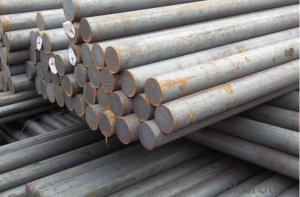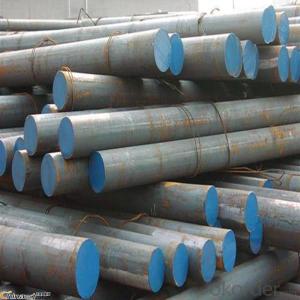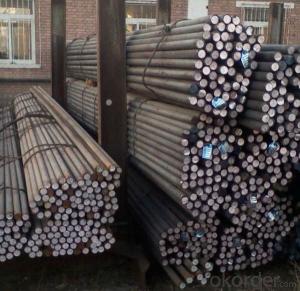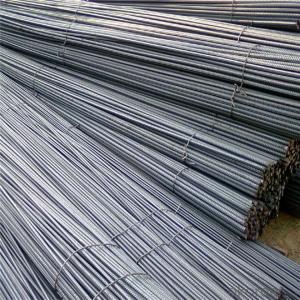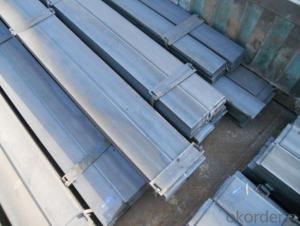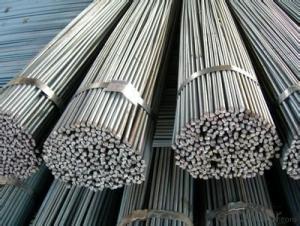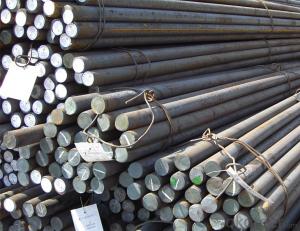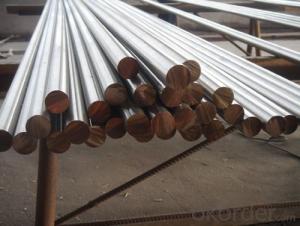Q195 TMT Steel Bars Hot Rolled Bars
- Loading Port:
- Tianjin
- Payment Terms:
- TT OR LC
- Min Order Qty:
- 25 m.t.
- Supply Capability:
- 50000 m.t./month
OKorder Service Pledge
OKorder Financial Service
You Might Also Like
Specification
Q195 TMT Steel Bars Hot Rolled Bars
Product Details:
Standard | GB(HRB335/HRB400/HRB500); |
BS4449 -1997 GRADE 250B, 460B; BS4449-2005 GRADE 500B; | |
ASTM A615 GRADE 40,GRADE60,GRADE75; ASTM A706; | |
DIN488-1 420S/500S, BST500S | |
JIS G3112 SD35, SD40, SD50,SD390 | |
NFA 35016 FE E 400, FE E 500 | |
CA 50/60 | |
GOST A3 R A500C | |
Surface finished | Screw-thread |
Production capacity | 50,000 MT/month |
Payment term | T/T or 100% L/C at sight |
Package | By bundles. One bundles about 2tons |
Specification:
Diameter (mm) | Weight (kg/m) |
8 | 0.395 |
9 | 0.499 |
10 | 0.617 |
11 | 0.746 |
12 | 0.888 |
13 | 1.04 |
14 | 1.21 |
15 | 1.39 |
16 | 1.58 |
17 | 1.78 |
18 | 2 |
19 | 2.23 |
20 | 2.47 |
21 | 2.72 |
22 | 2.98 |
23 | 3.26 |
24 | 3.55 |
25 | 3.85 |
28 | 4.83 |
32 | 6.31 |
36 | 7.99 |
40 | 9.87 |
50 | 15.42 |
Advantage:
· SGS and BV Audited company .
· We offer competitive price with great service .
· Finished Product Inventory-More Than 50000 Tons.
· We have win high reputation based on best quality products.
· We have the most convenient transport and fast delivery.
· We have high technical production line with top quality products.
Application:
Q195 TMT steel bar is a practical construction steel materials. It is widely used as the fitting bar for various steel bar concrete structure engineering and making of various construction components. With its high strength and the fixing strength with concrete, its sufficient plastic property, it can enhance the technical and the quality of the engineering, reduce the cost of raw materials and the cost of engineering at the same time. The finished products can be round coil or straight sizes.
Product Show:
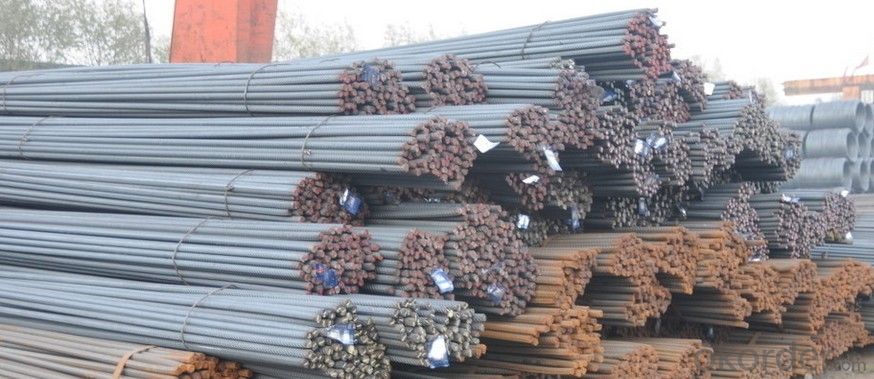
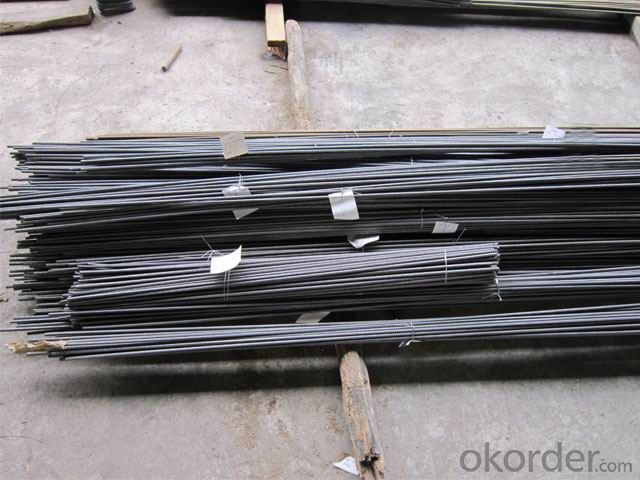
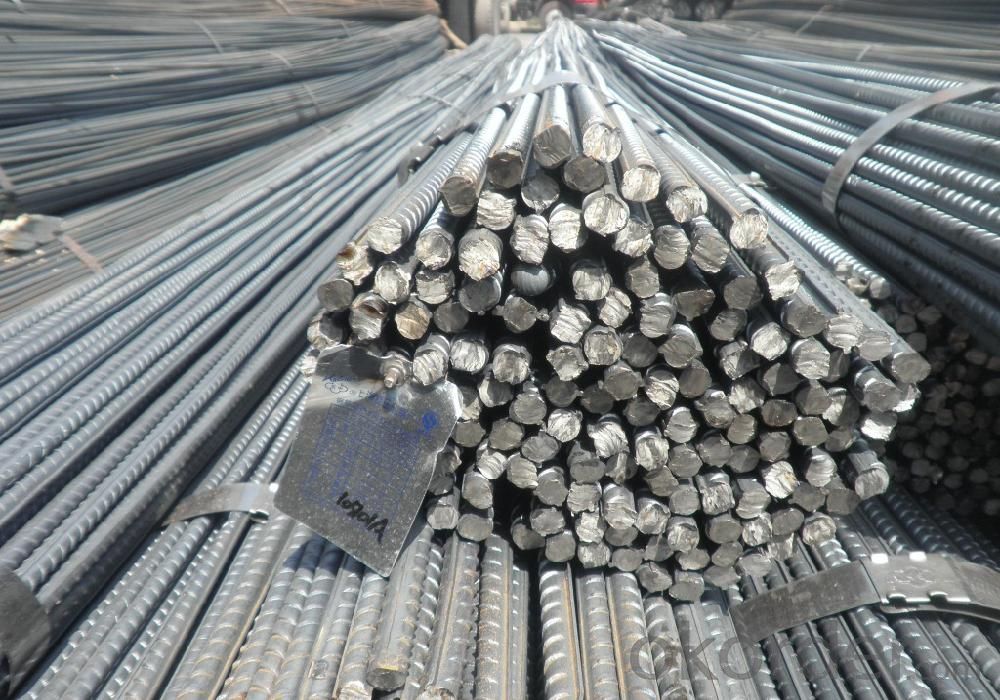
- Q:Can special steel be used in construction?
- Yes, special steel can definitely be used in construction. Special steel refers to steel alloys that have been specifically designed and manufactured to possess certain properties and characteristics that make them suitable for various applications, including construction. One of the most common types of special steel used in construction is known as structural steel. This type of steel is specifically designed to have higher strength, durability, and flexibility compared to regular carbon steel. Structural steel is often used in the construction of buildings, bridges, and other infrastructure projects due to its ability to withstand heavy loads and resist external forces such as wind, earthquakes, and impact. Special steel also offers other advantages in construction. For example, stainless steel is commonly used in the construction of architectural features and building facades due to its corrosion resistance and aesthetic appeal. Additionally, weathering steel, which forms a protective rust-like coating when exposed to the elements, is often used in outdoor structures and bridges to eliminate the need for regular painting and maintenance. Furthermore, special steel can be tailored to meet specific requirements in construction projects. For instance, high-strength low-alloy (HSLA) steel is used in the construction of tall buildings and structures to reduce weight while maintaining structural integrity. This allows for more efficient use of materials and cost savings. In summary, special steel is widely used in construction due to its superior strength, durability, corrosion resistance, and other desirable properties. Its versatility allows for the optimization of construction projects, ensuring safety, longevity, and cost-effectiveness.
- Q:What are the different magnetic grades of special steel?
- Various applications commonly utilize different magnetic grades of special steel. Some well-known magnetic grades include: 1. Soft Magnetic Materials: These special steel grades possess high magnetic permeability and low coercivity. They are ideal for applications requiring strong magnetic induction, such as transformers, electric motors, and magnetic cores for electrical devices. 2. Martensitic Stainless Steels: In their hardened state, these special steel grades exhibit a high magnetic permeability. They are commonly employed in cutlery, tools, and specific automotive components. 3. Ferritic Stainless Steels: Although their magnetic permeability is lower compared to martensitic stainless steels, these special steel grades are still magnetic. They find application in automotive exhaust systems, decorative trim, and appliances. 4. Duplex Stainless Steels: These special steel grades have a mixed microstructure of austenite and ferrite, resulting in a magnetic response. They are renowned for their exceptional corrosion resistance and are utilized in chemical processing equipment and offshore oil and gas platforms, where both strength and corrosion resistance are crucial. 5. Austenitic Stainless Steels: In their annealed state, these special steel grades are non-magnetic. However, slight magnetism can be observed when they undergo cold working or contain specific alloying elements. Austenitic stainless steels are widely used in food processing equipment, architectural structures, and medical devices. It is important to remember that the presence or absence of magnetism in special steel grades can vary depending on factors such as composition, heat treatment, and processing. Therefore, it is essential to consider the specific requirements of an application when selecting the appropriate magnetic grade of special steel.
- Q:What are the properties of ultra-high-strength alloy steel?
- Ultra-high-strength alloy steel possesses exceptional strength, hardness, and toughness, making it ideal for demanding applications. Due to its high carbon content and alloying elements such as chromium, nickel, and molybdenum, it exhibits outstanding resistance to wear, corrosion, and heat. Additionally, its superior mechanical properties enable it to withstand heavy loads, impacts, and extreme environments, making it a preferred choice in industries like aerospace, automotive, and construction.
- Q:Can special steel be coated or plated?
- Yes, special steel can be coated or plated to enhance its properties or provide additional protection against corrosion or wear.
- Q:What are the main applications of special steel in the telecommunications sector?
- Special steel is commonly used in the telecommunications sector for various applications. One of the main uses of special steel in this industry is for the manufacturing of transmission towers and antenna structures. These steel structures provide the necessary support and stability for telecommunication equipment, ensuring reliable signal transmission. Additionally, special steel is also utilized in the production of cables and wires, which are crucial for transmitting data and electricity in telecommunication networks. The high strength and durability of special steel make it ideal for withstanding the harsh outdoor conditions that telecommunication infrastructure often faces.
- Q:How does tool and die steel maintain its hardness and wear resistance?
- Tool and die steel maintains its hardness and wear resistance through a combination of factors such as its chemical composition, heat treatment, and surface treatments. The steel is typically alloyed with elements like chromium, vanadium, and tungsten, which enhance its hardness and wear resistance properties. Additionally, through heat treatment processes like quenching and tempering, the steel is subjected to controlled heating and cooling cycles, which further contribute to its desired hardness and toughness. Surface treatments like nitriding or coating with materials like titanium nitride can also be applied to improve the wear resistance of the steel. Overall, it is the careful selection of steel composition, precise heat treatment, and appropriate surface treatments that enable tool and die steel to maintain its hardness and wear resistance.
- Q:What are the properties of special steel?
- Special steel has a high level of strength, durability, and resistance to corrosion. It also exhibits excellent heat resistance, hardness, and toughness, making it suitable for various applications in industries like aerospace, automotive, and construction. Additionally, special steel often possesses specific properties such as magnetic, electrical, or wear resistance, depending on its composition and treatment.
- Q:What are the different joining methods for special steel?
- Some of the different joining methods for special steel include welding, brazing, soldering, and adhesive bonding.
- Q:What are the different nuclear grades of special steel?
- The different nuclear grades of special steel refer to specific types of steel that are used in the nuclear industry to meet stringent requirements for safety, reliability, and performance. These grades are designed to withstand the harsh conditions of nuclear power plants and other nuclear facilities. There are several nuclear grades of special steel, each with its own unique characteristics and applications. Some of the commonly used grades include: 1. 304/304L stainless steel: This grade is widely used in nuclear applications due to its excellent corrosion resistance and high strength at elevated temperatures. It is often used in the construction of reactor vessels, heat exchangers, and piping systems. 2. 316/316L stainless steel: Similar to 304/304L, this grade offers superior corrosion resistance and high creep strength. It is commonly used in the construction of components exposed to corrosive environments, such as coolant systems, steam generators, and fuel handling equipment. 3. 321 stainless steel: This grade contains titanium, which stabilizes the steel against sensitization during welding. It is often used in nuclear applications where welding is required, such as piping systems and pressure vessels. 4. Duplex stainless steels: These grades, such as 2205 and 2507, offer a combination of high strength and excellent corrosion resistance. They are commonly used in nuclear applications involving highly corrosive environments, such as seawater-cooled systems and containment structures. 5. Low alloy steels: These steels, such as A533B and A508, are used in the construction of reactor pressure vessels due to their high strength and toughness. These grades are specifically designed to withstand the extreme conditions within a nuclear reactor. It is important to note that the selection of the appropriate nuclear grade of special steel depends on the specific application, considering factors such as temperature, pressure, corrosion resistance, and mechanical properties. These grades undergo rigorous testing and quality control measures to ensure their suitability for use in the nuclear industry.
- Q:What are the applications of special steel in the agriculture sector?
- Special steel has numerous applications in the agriculture sector. It is used in the manufacturing of machinery and equipment such as plows, cultivators, and harvesters, due to its high strength and durability. Special steel is also utilized in the production of storage tanks and silos, providing protection against corrosion and ensuring the safety of agricultural products. Additionally, it is employed in the fabrication of irrigation systems, fencing, and animal enclosures, offering longevity and resistance to wear and tear. Overall, special steel plays a crucial role in improving productivity and efficiency in various agricultural operations.
1. Manufacturer Overview |
|
|---|---|
| Location | |
| Year Established | |
| Annual Output Value | |
| Main Markets | |
| Company Certifications | |
2. Manufacturer Certificates |
|
|---|---|
| a) Certification Name | |
| Range | |
| Reference | |
| Validity Period | |
3. Manufacturer Capability |
|
|---|---|
| a)Trade Capacity | |
| Nearest Port | |
| Export Percentage | |
| No.of Employees in Trade Department | |
| Language Spoken: | |
| b)Factory Information | |
| Factory Size: | |
| No. of Production Lines | |
| Contract Manufacturing | |
| Product Price Range | |
Send your message to us
Q195 TMT Steel Bars Hot Rolled Bars
- Loading Port:
- Tianjin
- Payment Terms:
- TT OR LC
- Min Order Qty:
- 25 m.t.
- Supply Capability:
- 50000 m.t./month
OKorder Service Pledge
OKorder Financial Service
Similar products
Hot products
Hot Searches
Related keywords
